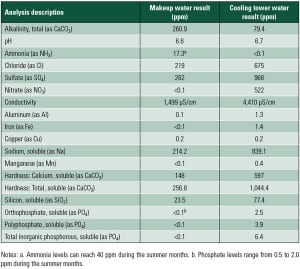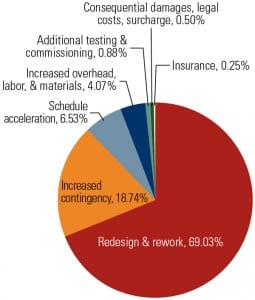Features
-
Gas
Performance-Based Cooling Water Treatment
A West Coast combined cycle plant that uses reclaimed water found that cycling 300 times a year caused disruptions to the plant’s cooling water chemical treatment program. The solution was a performance-based monitoring and control system that uses available plant operating data plus algorithms to measure corrosion rates and fouling factors, which in turn allows the plant to trim chemical feed rates so they correlate with a specified corrosion rate, rather than a suggested chemical residual.
-
Business
Allocating Project Risk
Power generators typically allocate construction risks through the process of aversion. Owners have a tendency to shift risk to a project’s primary contractor, who in turn pushes it to lower-tier parties in the contracting arrangement. Research by the Construction Industry Institute has found that there are more equitable ways to allocate project risk.
-
Coal
Innovation Required as Gas Displaces Coal
Panelists at the ELECTRIC POWER Keynote and Roundtable Discussion in Baltimore in May wrestled with a range of issues. But despite calls for a “balanced portfolio,” an “all-of-the-above” energy strategy, and predictions of “more changes in the next 10 years than in the last 100,” the focus of attention appears to be the decidedly mundane displacement of coal by natural gas.
-
Hydro
Utility Perspectives on Ramping Up Renewable Power
Panelists at ELECTRIC POWER discussed how U.S. utilities choose renewable power generation technologies based on their geographic locations, state requirements, economics, and other criteria—including reliability and federal regulations.
-
Coal
New Technologies Advance Biomass for Power Generation
As U.S. utilities seek to increase the percentage of carbon-neutral biomass used in their generation portfolios, they must deal with a number of complex challenges unique to this fuel source. Several breakthrough technologies are poised to help promote greater use of biomaterials.
-
Coal
Clean Air, Dirty Water
Efforts by power producers to meet clean air rules mean that wastewater effluent streams now face revised EPA regulations. A skirmish involving a New Hampshire power plant could set the tone for the next battle over regulations.
-
Nuclear
Fukushima Disaster Continues to Cloud Nuclear Outlook
With new reactors finally under construction, this should be an optimistic time for nuclear power in the U.S. But cheap natural gas, rising construction costs, and the Fukushima accident’s lingering pall have darkened the mood.
-
Solar
Boosting CSP Production with Thermal Energy Storage
Combining concentrating solar power (CSP) with thermal energy storage shows promise for increasing grid flexibility by providing firm system capacity with a high ramp rate and acceptable part-load operation. When backed by energy storage capability, CSP can supplement photovoltaics by adding generation from solar resources during periods of low solar insolation.
-
Gas
Unconventional Gas: The Great Game-Changer
Dr. Daniel Yergin, chairman of IHS Cambridge Energy Research Associates, is a Pulitzer Prize–winning author; leading authority on energy, international politics, and economics; and a recipient of the United States Energy Award for “lifelong achievements in energy and the promotion of international understanding.” He recently spoke with POWER about his latest book—and more.
-
History
Japan Scrambles to Revamp Its Electricity Sector
The March 2011 Japanese earthquake and tsunami that destroyed a number of Japanese power plants—most notably, four nuclear units—hit quickly. Almost as speedy were calls to take all other nuclear units out of service for safety reviews. What will take much longer is developing a new, sustainable energy plan to fill the generation gap left by a potential total lack of nuclear power.









